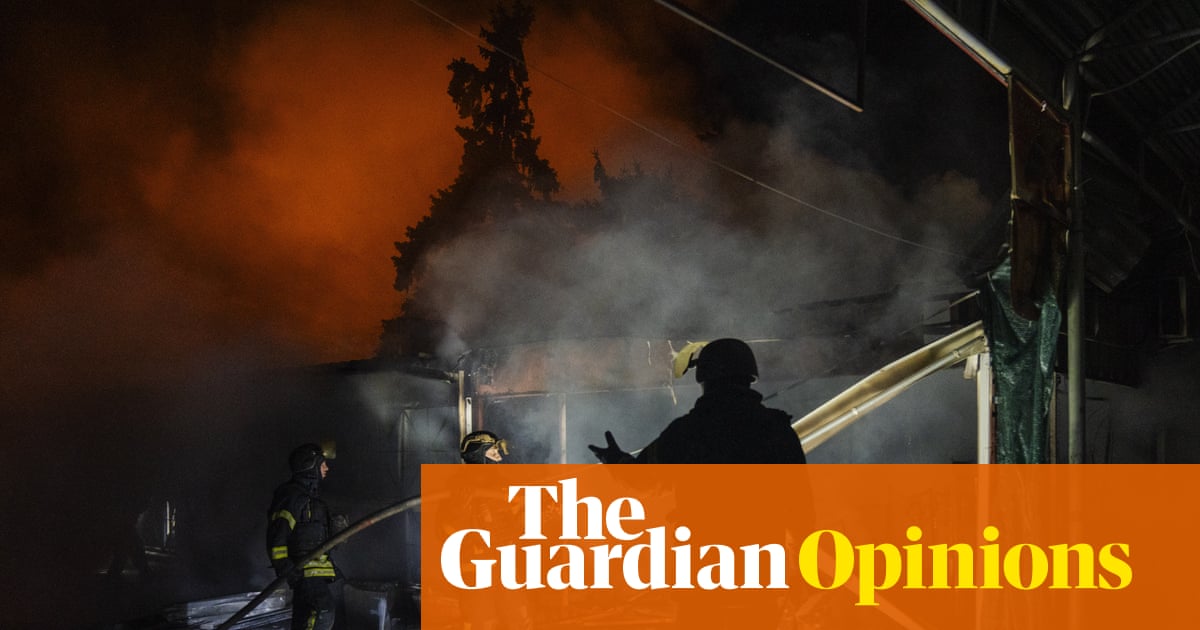On Wednesday, President Trump imposed substantial new sanctions on Russia’s giant oil and gas companies, and lifted restrictions on the use of certain long-range missiles by Ukraine, which will now be able to strike more freely into Russia itself. These moves come on the heels of Trump’s conversations last week with Vladimir Putin and Volodymyr Zelenskyy, after which the US president expressed his frustration at both side’s intransigence. Trump had hoped to end this war long ago. Will this be enough?
When Russia launched its full-scale invasion of Ukraine in February 2022, the US and its allies chose a strategy that aimed to use Washington’s awesome political, economic and military power to impose such high costs on Russia that the Kremlin would sue for peace on Ukraine’s terms. This “cost-imposition” strategy makes sense in theory. The problem is that, in practice, it has slowed Russia’s progress but not persuaded Putin to end his aggression.
Despite multiple rounds of sanctions, more advanced weapons for Ukraine and Ukraine’s own development of more capable weapons such as drones, Russia is still far from capitulation. It now occupies more of Ukraine than it did three years ago. In February the war will enter its fifth year of fighting – just a few months shy of the length of the first world war.
For advocates of the cost-imposition strategy, the answer is clear: more pressure. Specifically, they want an indefinite commitment to more sanctions, more weapons for Ukraine (such as Tomahawk missiles, which the US has so far refused to supply) and the seizure of frozen Russian assets in Europe. Yet more such measures are alone unlikely to provide the shock that would be needed to fundamentally change the trajectory of the war and force the Kremlin to capitulate to Ukraine’s negotiating terms.
The oil and gas sanctions just announced increase the pressure, but they come after years and years of sanctions to which Russia has adjusted. The EU is on its 19th package of sanctions on Russia, and the returns are diminishing, with China’s backing for Moscow damping their effect. Few military experts, meanwhile, believe that additional weapons, even the powerful Tomahawk, would have a decisive impact on the war. Back in 2023, Ukraine successfully pleaded for Abrams tanks on the grounds they would turn the tide, but they did nothing of the sort. The long-awaited F-16s were also not the magic bullet some expected – nor was last year’s relaxation of restrictions on Ukraine’s long-range strikes into Russia.
There’s also a logical flaw with the “cost-imposition” strategy of how to end the war. On the one hand, proponents of more pressure often claim that serious negotiations now are pointless because Putin is determined to subjugate all of Ukraine. On the other hand, they claim that marginal increases in military or economic pressure will somehow cow him. But if Putin is really hell-bent on dominating all of Ukraine, then why should we expect upping the pressure a little to make a difference?
To be sure, the US and its allies have good reasons to impose serious costs on the Kremlin. Russia has rightly felt the economic and military pain, enough to get the attention of other would-be aggressors worldwide. Without western support, Ukraine would have struggled mightily to prevent Russian forces from entering Kyiv and ousting Zelenskyy. Pressure of this kind is an important ingredient in getting to a ceasefire. But it’s not sufficient in itself.
So, don’t expect these additional sanctions to end the war any time soon – unless they are combined with a more open negotiating position from the west. This may mean a deal somewhat more favourable to Russia than the west would prefer. If the war were to end, for example, with Russia occupying the Donbas, it would be an unfair outcome for Ukraine and frustrating for its backers – but still better than many alternatives.
Some ostensible supporters of Ukraine may secretly prefer to keep the war going, for example, to ward off the Russian threat by tying it down in Ukraine. But several years with no progress should lead the rest of us to reassess what US power can actually achieve in Ukraine at acceptable costs. Unwillingness to recognise and accept the limits of US power is a refrain that runs through the histories of Washington’s involvement in Vietnam, Iraq and Afghanistan.
after newsletter promotion
The same basic dynamics are at play with Ukraine: ambitious objectives at the outset that the US proves powerless to achieve, leading to a multi-year entanglement that that no one will remember as a victory. The US may still be the most powerful country in the world, but failing to heed the limits of its power makes it less successful abroad – and corrodes its politics at home.
